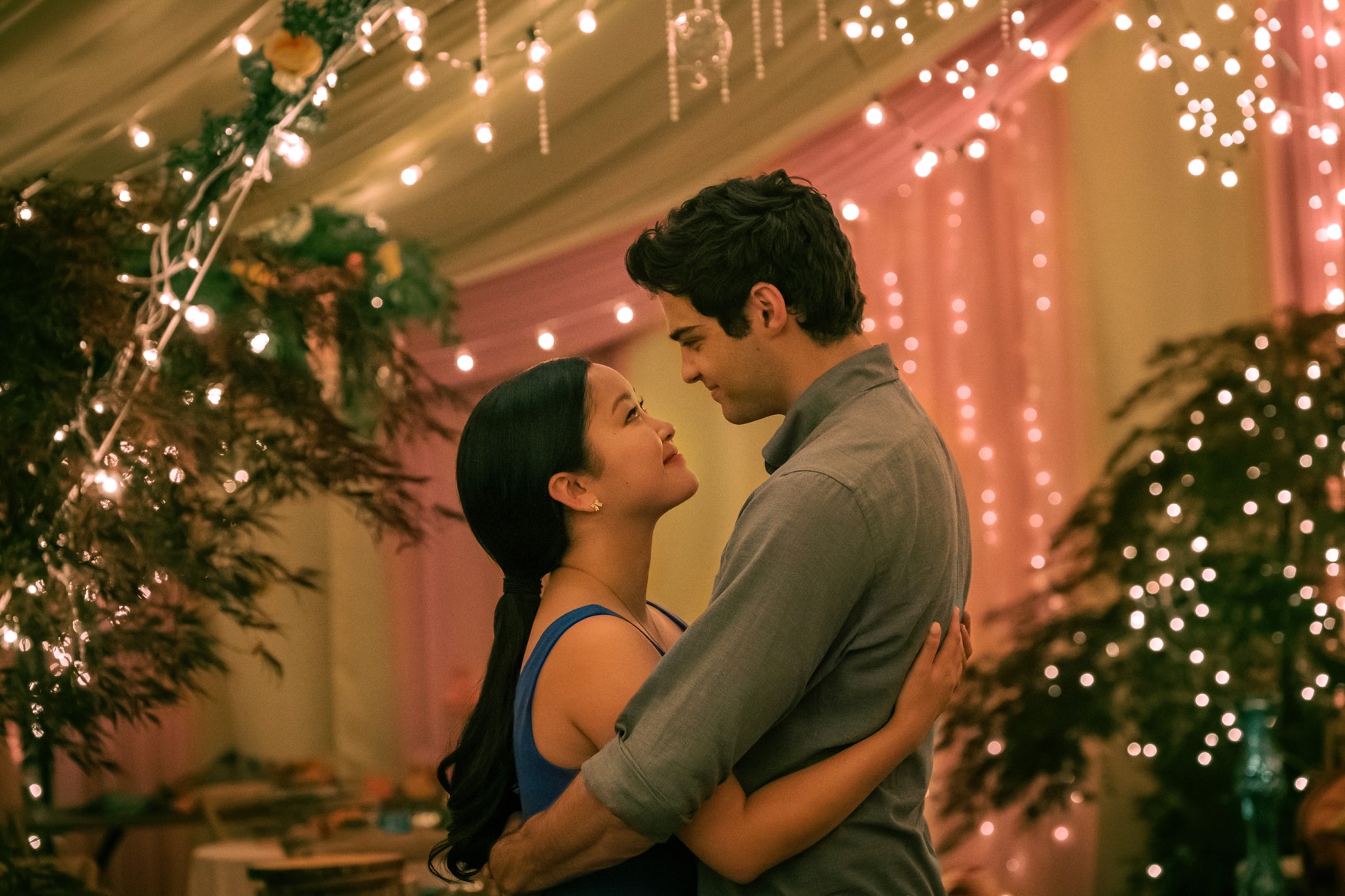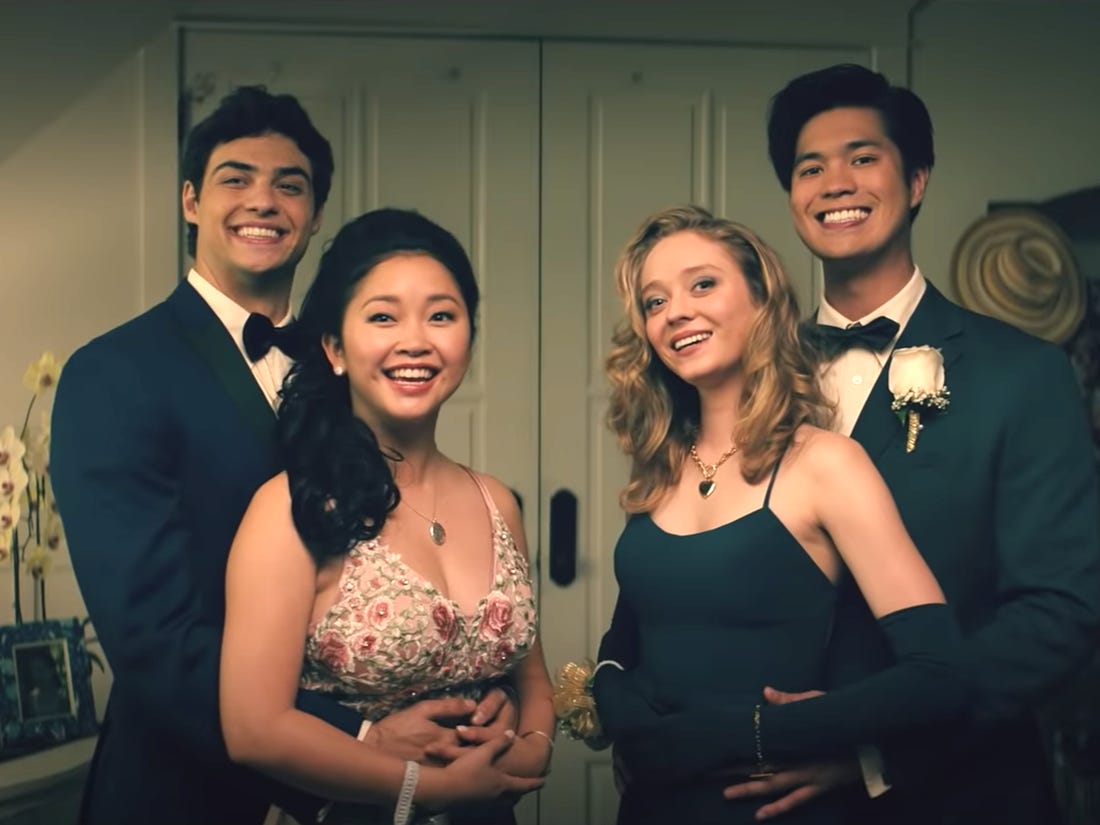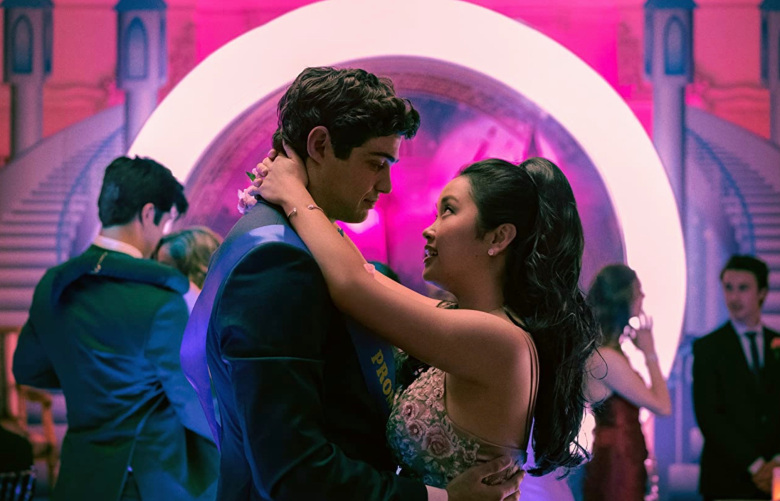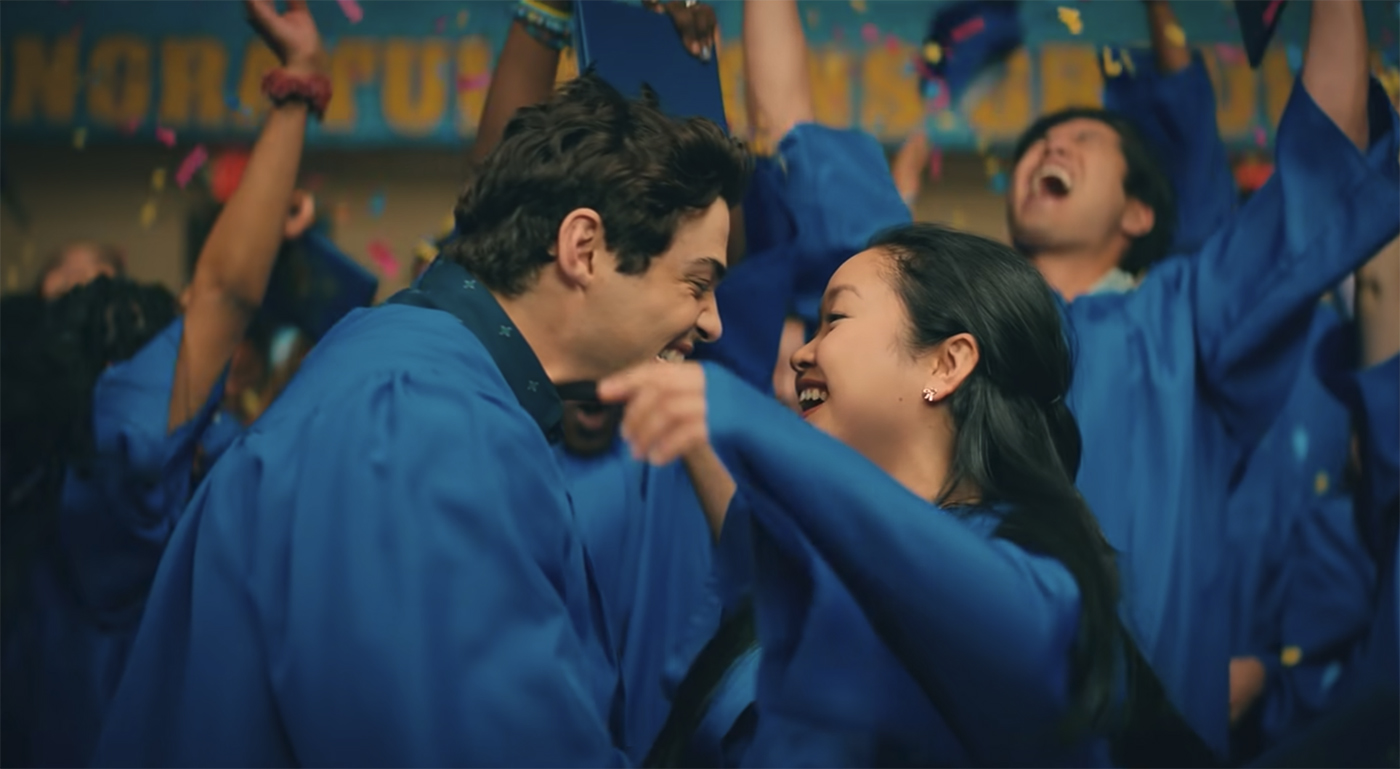“To All The Boys: Always and Forever” is the Disappointing Finale To The Beloved Netflix Saga
The love story of Lara Jean and Peter Kavinsky comes to a close with the third movie in the trilogy, an underwhelming final installment.

The saga of Lara Jean Covey has come to a close, but, like a love letter, her words will live on as a hallmark of late-2010s rom-com glory.
To All The Boys: Always and Forever premiered on Netflix on February 12, the closing chapter to the 2018 hit To All The Boys I’ve Loved Before and sophomore installment To All The Boys: P.S. I Still Love You. For films which center around the cheesy giddiness of love, wrapped in and around cliche romances and high school dating, the series ended exactly as one would expect: with a borderline-nauseous, all-too banal—albeit, at times delightfully gooey—finale.

The To All The Boys series has never been glorified for its plot, but rather for its depictions of love. Based on the book series by Jenny Han, it follows Lara Jean, a prim and pristine half-Korean, half-American high school “good girl” who is infatuated with unattainable levels of literary fictional romance.
Throughout her adolescence, she’s written “love letters”—addressed, but never sent—to boys she’s fallen in love with as a means to get over them, locking her feelings for them away between pen and paper forever. But when LJ’s little sister, Kitty, finds and sends all the letters she’s ever written (including one to her older sister’s BF and one to her ex-bestie’s BF), a drastic contractual fake-relationship plot ensues, becoming heartwarmingly authentic by the end of the first installment.
Solid and unified as ever, To All the Boys: Always and Forever follows Lara Jean (played by Lana Condor) and her boyfriend Peter Kavinsky (played by Noah Centineo) as they approach their high school graduation, navigating the hazy senior year atmosphere of prom, school trips, and worst of all: what their relationship will look like in college, and how to reconcile wanting different things with still wanting each other.

At its best, To All the Boys: Always and Forever is a fun and flirty love story, a satisfactory—if not underwhelming—ending for the beloved Lara Jean which sees her embracing her life, her family, her future. At its worst, it is a sappy rom-com which oversteps the boundaries a rom-com intending to be sappy sets for itself, weaving a predictable (and at times, boring) narrative in under two hours, dragging conflict out too heavily to the point of a swift, end-all be-all resolution and happy ending.
On its own, Always and Forever is a perfectly fine film, one which teens years from now might watch with a sense of nostalgia, sharing photos on social media with captions adjacent to “Lara Jean and Peter had the best relationship in the early 2020s <3.” In relation to the rest of the trilogy, however—especially To All The Boys I’ve Loved Before—it is a disappointment, a sharp contrast to the lively, bubbly, charming and charismatic characters we saw in the first movie, blurring them to the point of desaturated distortment at the series’ end.
The completion of the series feels like it belongs to an entirely different saga than the beginning of it; where TATBILB was romantic, funny, sweet and endearing, each scene built with realistic teen dialogue and giggle-inducing sequences, TATB: AAF feels slow, a shadow of itself riffing off the remains of what once was. The majority of the movie focuses on the struggle of Lara Jean not getting into Stanford with Peter as she had planned, and instead finding her potential future at NYU. An easy statement—only, in the movie, it’s dragged out to the point of irritation, turning two sweet and beloved characters into uncommunicative, erratic caricatures of themselves.
The soft, heartwarming romance between Peter and LJ is all but gone completely, replaced by a slightly annoying, bickering couple who seem to have no chemistry together whatsoever. It’s a great disappointment, to see the two characters you once rooted for so heavily to get together to be so unlike how they started that you’re now, in fact, rooting for them to just break up and move on. Their words and actions don’t make sense, their interactions with each other feel forced, and, perhaps most devastatingly of all, as individuals Peter and Lara Jean have become simply…unlikeable—once a loveable jock-type heartthrob, Centineo’s Peter Kavinsky is now a moody, standoffish asshole, while Condor’s Lara Jean has turned from effortlessly relatable and endearing to a more quiet and inconsistent version of herself.

The self-aware cheesiness of the first movie, seen in friends’ remarks to Lara Jean about how life isn’t a romance novel and perfectly-executed daydream fantasies to Lara Jean in various positions of damsel in distress-ness, is contorted into an over-the-top cheesiness punctuated in characters’ dialogue and interactions with themselves, warping LJ’s darling cluelessness into a borderline-frustrating ignorance (I mean, she applies to NYU without knowing it’s in Manhattan). It’s like watching a poorly written fanfiction of To All The Boys I’ve Loved Before, as though Always and Forever is fandom-adjacent, but doesn’t quite hit the mark.
The third film was filmed adjacent to the second, which also had a displaced, erratic vibe in comparison to the first film—perhaps this could be a reason for the continuing downhill trend of the series? Certainly not unpleasant enough to ruin the entire trilogy for me—while I rewatched TATLIB a dozen times since its release, I’ve only seen the second and third movies once each, and don’t plan to watch either of them again—Always and Forever is an echo of the fun, flowery, witty romantic comedy that the first film marked the potential for.
What could have been a great love story is twisted by needless conflict and strive, and though Condor’s Lara Jean holds together the franchise remarkably well with her charismatic, sweet demeanor, Always and Forever crosses into the boundary of charmingly cliche to overzealously cheesy, a slight but detrimental shift away from the easygoing beauty of To All The Boys I’ve Loved Before (seriously—one of the last lines of the movie is essentially “Other couples break up from long distance, but we won’t, because we’re special”).
As a lover of Han’s book series and the original To All The Boys movie, the third installment is disappointing, but doesn’t leave me so heavily dissident that it’d put me off watching To All The Boys ever again. Far from ruining the original series, To All The Boys: Always and Forever, doesn’t add to it, either—it just…is.
Discover More
